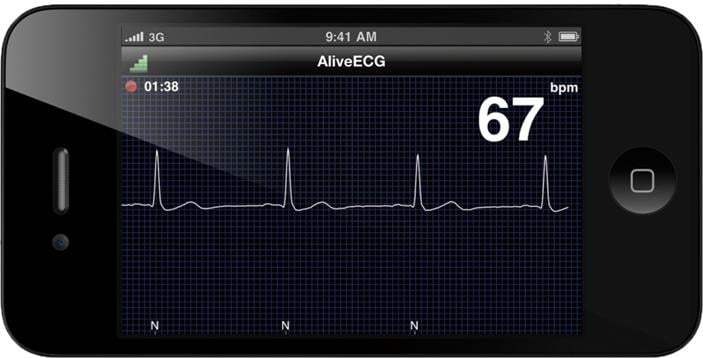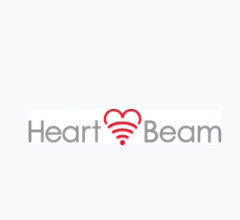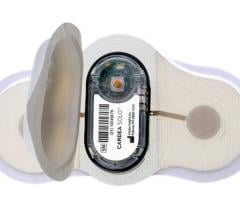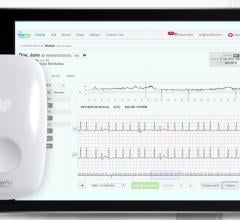
January 8, 2013 — The results of a recent study presented yesterday at the American Heart Association Scientific Sessions 2012 conference in Los Angeles showed that a high-quality single-lead ECG can be quickly and easily recorded using an iPhone with the AliveCor medical device and application to diagnose atrial fibrillation (AF).
The study concluded that the mobile device could be an innovative approach to community screening to prevent stroke.
The study, “Validation of an iPhone ECG Application Suitable for Community Screening for Silent Atrial Fibrillation: A Novel Way to Prevent Stroke,” was presented by Dr. Jerrett Lau, from Sydney, Australia. The principal investigator was Ben Freedman, MBBS, Ph.D., FACC, Cardiologist, Department of Cardiology, Concord Hospital and professor of Cardiology at the University of Sydney, Sydney, Australia.
The researchers tested a novel iPhone application suitable for community use (AliveCor Heart Monitor), which records and sends a high-quality single-lead ECG to a server for automated analysis and subsequent interpretation by a physician to diagnose AF. The study included 109 patients (70 sinus rhythm and 39 AF) who had single-lead ECGs recorded with the AliveCor Heart Monitor before a 12-lead ECG had been performed, in order to develop the optimized algorithm. The AF diagnosis was then validated in another 204 patients (48 AF).
The study results indicated that a high-quality single-lead ECG can be rapidly and simply recorded using an iPhone with the AliveCor application and Heart Monitor device to accurately diagnosis AF. The results presented during the session were statistically significant with accuracy rates of 94 percent and 95 percent for the two cardiologists interpreting the raw trace, and 97 percent for the automated algorithm, which was optimized to enhance sensitivity (sensitivity 98 percent, specificity 97 percent).
AF is the most common sustained arrhythmia and carries a five-fold increased risk of stroke. It is common in the elderly; previously unrecognized AF is estimated to occur in 1 to 2 percent of those over 65. A significant proportion of ischemic strokes are due to previously unrecognized AF, which is largely asymptomatic, and may therefore require community screening to detect the arrhythmia.
Until now, community ECG screening has not been considered to be a feasible approach for AF detection.
Freedman concluded of the AliveCor Heart Monitor, “At last, we have an effective and simple way to do community ECG screening for unknown atrial fibrillation, with the real potential to reduce the stroke burden.”


 July 22, 2025
July 22, 2025 



